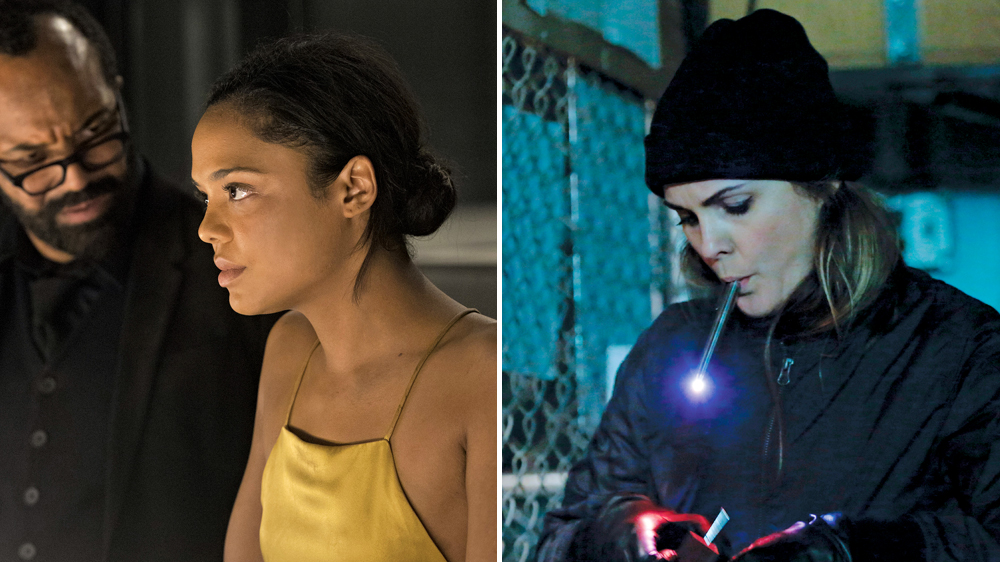Emmys 2018: A Choice Between Drama’s Past and Future (Column)
By Daniel D’Addario
LOS ANGELES (Variety.com) – The drama series race at this year’s Emmys may lack for new blood, but don’t mistake that for an uninteresting field.
Two-time champion “Game of Thrones” is seeking a return to glory after a year of ineligibility, while “The Americans” is out for vindication, never having scored a major Emmy prize despite seasons of excellence. Meanwhile, five second-season series — all newcomers to the field in 2017 — jostle for position, with no one the clear favorite. “The Handmaid’s Tale” may be the defending Emmy champion, but, after a season that often frustrated viewers, it’s hardly a safe choice, not least when four other nominees all nailed their sophomore outings.
What’s impressive about the field is how neatly it seems to cover all the best of TV drama, old and new. “This Is Us” leans into its status as the sole broadcast drama by going self-consciously broad and bold with its emotionality, wringing tears along with insights about family life. Among the streaming nominees, series pay studied, careful homage to the costume drama and the family-entertainment spectacle (“The Crown” and “Stranger Things”), or paint a picture of a whole new dystopia (“The Handmaid’s Tale”). And the cable nominees include both a sharp character study playing off the past decade of anti-hero dramas (“The Americans”) and two series whose embrace of earth-shattering spectacle are pivoting TV forward into its next decade.
“” and “Westworld,” between them, are the two most-nominated primetime series this year, with “The Handmaid’s Tale,” a show that bears a bit of its influence in its willingness to take huge narrative swings within a carefully constructed fantasy world, close behind. HBO’s nominated shows are inaccessible to outsiders, but richly rewarding to core fans; they reward careful attention, re-watching, and endless parsing online. The confusions of “Thrones” tend to come from its sprawling ensemble and geographical landscape; its character motivations and plot points, though, are easily understood, a trait it shares with “The Handmaid’s Tale.” “,” by contrast, skitters through time and hides characters’ identities, creating a baroque, almost illegible that’s impressive in part precisely because its emotional stakes are clear even as so much else is left obscured.
“What’s impressive about the field is how neatly it seems to cover all the best of TV drama, old and new.”
The two standouts of this year’s field represent the best of two traditions — one picking up steam, and one that may be drawing to a close. “Westworld” feels like a show built to cut through the noise in the current environment, merging crystalline emotional moments with the delight of constant discovery of new narrative avenues. By contrast, “The Americans” thrived for six years on slight recalibrations within a single marriage; the geopolitical stage on which Philip and Elizabeth Jennings played may have been massive, but the action of the series was as often premised on granular shifts in affection or motivation. It was as much about Russian tradecraft as “Mad Men” was about the ad game or “The Sopranos” about the mob — the premise was the vehicle that got you to a story about carefully crafted characters in widely relatable crises.
The finely wrought character drama, one to which we relate despite its characters’ base impulses, is no longer as in vogue as it once was. With “The Americans,” coming at the end of the tradition and consequently never truly widely embraced, off the air, only “Better Call Saul” carries on the tradition at a high level. But “Westworld’s” impact — merging old-school puzzle-box intrigue with the massive budgets and the trust in a sophisticated and willing audience that could only exist today — is only beginning to unfold. The choice between TV’s two best dramas at the moment isn’t just one between a show that’s concluded and one that’s only just picking up steam; it’s a choice between TV’s recent past and its unfolding future.

